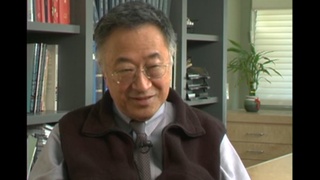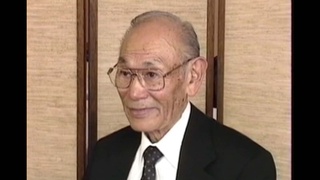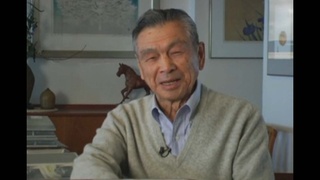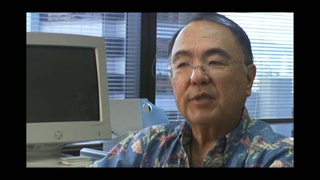Interviews
Camp as a positive thing
Everything in camp could be a positive thing. Every person you meet, you know, that you never met before or you hear what town they came from, or if they were farmers or fisherman or what, you know. I mean, to me I didn’t think of that experience as being such a negative thing. I thought, everybody goes through changes through life—after all, look at what our parents, they left their home country and came here. And here, we just went from our hometown to this camp that I didn’t think… and I had told all the Sunday school kids, “Your life hasn’t even begun yet. You don’t even know what you’re gonna go through five years from now, ten years from now, twenty years from now…” And so, I mean, I thought it’s good to prepare them that this isn’t the worst thing that could happen. And then, of course, afterward when I learned about slavery and the way blacks were treated, I thought to myself, “My God! I mean, how can we complain where others have been treated so much worse…”
Date: June 16, 2003
Location: California, US
Interviewer: Karen Ishizuka, Akira Boch
Contributed by: Watase Media Arts Center, Japanese American National Museum.
Explore More Videos

Awareness of concentration camps as a Japanese American
(1923-2011) Lawyer, MIS veteran, founder of Francis and Sarah Sogi Foundation

His experiences in Chicago after WWII
(b.1929) Pioneer medical researcher in tissue transfer and organ transplantation.

Manhunt
(1919 - 2005) Challenged the constitutionality of Executive Order 9066.

The Final Verdict
(1919 - 2005) Challenged the constitutionality of Executive Order 9066.


Less information about Hawai‘i in mainland
(b.1944) Founder of Kobayashi Group, LLC


A teenager's memories of how a local newspaper misrepresented Japanese Americans
(b. 1925) Draft resister

The role of the media in influencing people's opinions
(b. 1925) Draft resister

Reaction to a 1942 speech by Mike Masaoka, Japanese American Citizen League's National Secretary
(1915 - 2011) Nisei florist who resettled in New York City after WW II. Active in Japanese American civil rights movement

First learning about the incarceration experience in college
(b. 1955) Lawyer


Feeling angry upon reading of Supreme Court case, 'Korematsu v. United States'
(b. 1955) Lawyer

Reasons for conformity and competitiveness in Gardena, California
(b. 1946) Lawyer

Role of the redress movement in helping Nisei to open up about their wartime experiences
(b. 1946) Lawyer
